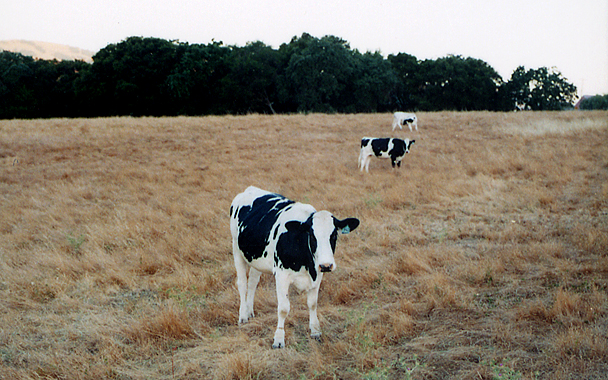Local, seasonal, raised humanely. It may not trip off the tongue, but that could soon be the new mantra of conscientious eaters. Humane animal husbandry, now practiced by only a small number of producers, is set to explode over the next few years, becoming a hot (and welcome) trend, according to panelists addressing the Monterey Bay Aquarium’s Cooking for Solutions conference last week.
“I’m working on big projects I never dreamed would happen,” said Tim Amlaw, director of the farm animal program at American Humane, based in Englewood, CO. “We’re going to make the transition.” Amlaw estimated that about 3 percent of farms raising “major animal-protein species” in the United States would currently qualify for humane certification by his group. He expects that to rise to 35 percent within the next five years.
Part of the momentum will come from new laws and regulations. Last November, Californians passed Proposition 2, which forbids farmers from confining veal calves, pregnant sows, and laying hens in crates and cages too small to allow normal movement. “Prop. 2 is just the tip of the iceberg,” said Marcus Benedetti, president of Clover Stornetta Farms, a humane-certified California dairy company. “If the voters in this state knew what was going on in the rest of agriculture, there would be referendum after referendum.”
In addition to regulatory action, the trend toward better husbandry is being driven by consumer demand. “Our organization is 131 years old,” said Amlaw. “Now, for the first time, we are moving from a model where government is pushing farmers toward better practices to a model where consumer demand is pulling them in the right direction. The best way to get corporations to make changes is to show them there’s money in it. Consumers are now saying, ‘We want a better food source.’”
Temple Grandin, an author and associate professor of animal science at Colorado State University, specializes in developing humane husbandry and slaughter techniques. She pointed out that there were financial benefits to good practices. “It comes down to stockmanship,” she said. “Well-treated cows give more milk; sows more piglets.” She added that humanely killed pigs and cows produced higher quality meat than those that suffered undue stress.
Grandin, who established a set of clear, objective, numerical standards for humane slaughterhouse procedures, is currently at work on creating her own certification program for humane producers. “I don’t want it to be a marketing thing,” she said. “I’m going to make sure they are doing what they say they are doing.”
Financial incentives, laws, and stringent monitoring are all well and good, but Grandin reminded attendees of the most important argument for humane farming. “It’s the right thing to do,” she said. “Animals feel pain.”


